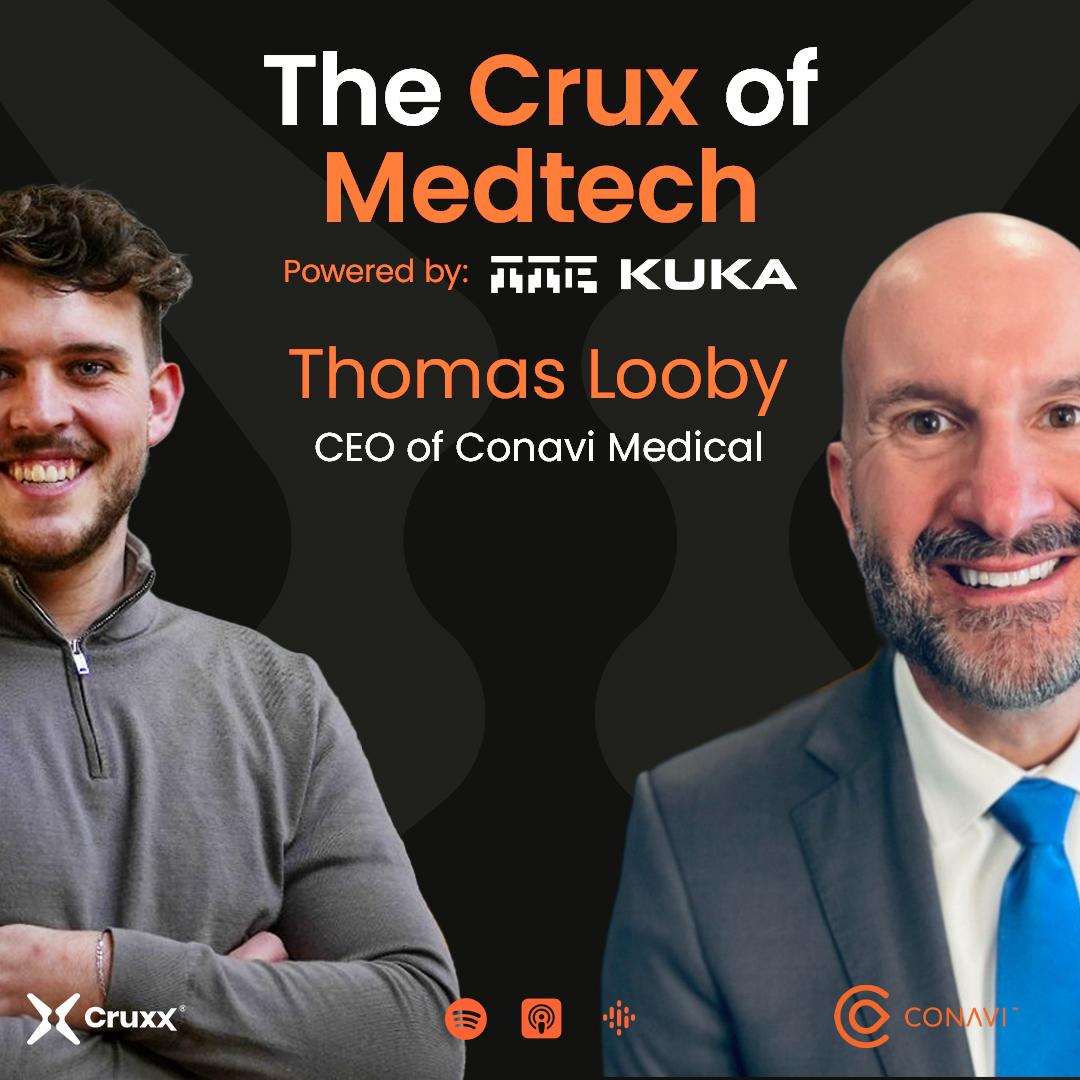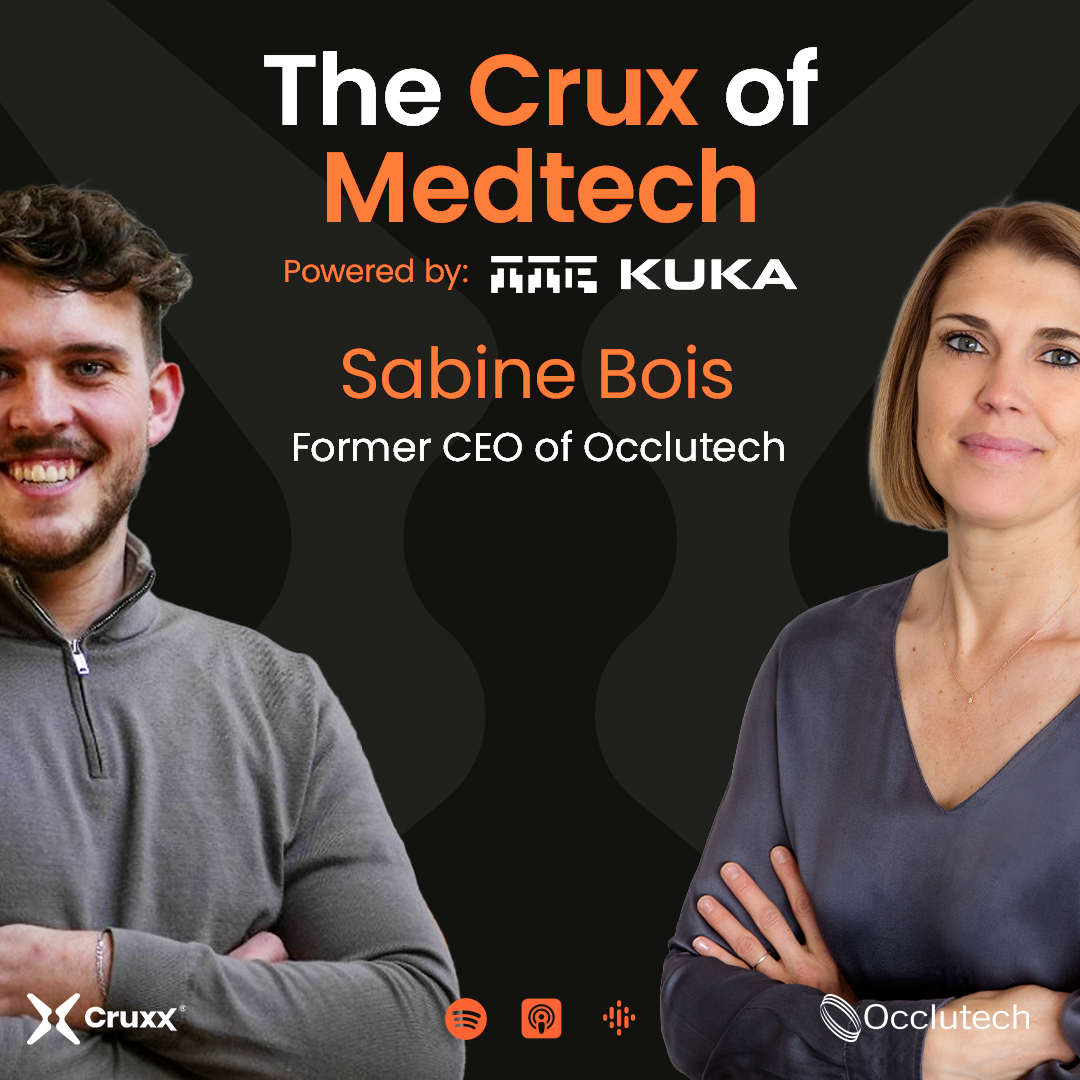On Episode 2 of The Surgibots Podcast we spoke to David Fischel, the Chairman and CEO of Stereotaxis, about the benefits of surgical robotics for patients and surgeons.
Dual-Modality Imaging That Rewrites PCI Outcomes with Thomas Looby
On Episode 2 of The Surgibots Podcast we spoke to David Fischel, the Chairman and CEO of Stereotaxis, about the benefits of surgical robotics for patients and surgeons.

On Episode 2 of The Surgibots Podcast we spoke to David Fischel, the Chairman and CEO of Stereotaxis, about the benefits of surgical robotics for patients and surgeons. David joined Sterotaxis after a successful career in the financial industry, where he specialised in medical device venture capital and healthcare hedge fund investments. After seeing Stereotaxis’ innovation and potential, David transitioned into a business management role to help the company take their surgical robot for minimally invasive heart surgery to the next stage.
What's the effect on the patient when surgery is performed mechanically compared to when it's done robotically?
The vast majority of our clinical experience has been in one specific type of endovascular surgery called cardiac ablation, which is a procedure used to treat arrhythmias. In the procedure, if the heart is not beating regularly, catheters are navigated into the heart chambers. There are a subset of interventional cardiologists focused on arrhythmia and heart rhythm disorders, and they're able to use electrogrammes, mapping systems and other diagnostic tools to determine where the misbehaving heart muscles are that are causing this irregularity. They can then use an ablation catheter, typically with an RF energy, to ablate that tissue and isolate the misbehaving heart muscle cells.
That's a very common procedure - there are about 1.2 million of those a year around the world. You have to control the tip in a very precise way and get your blade in the right spot to treat the arrhythmia. If you put the blade in the wrong spot you can cause significant damage to the patient, so you have to take direct control of the tip and hold the catheter in a very steady position against the tissue. With the robots, you can do all of that with a very soft and gentle catheter, which has a much lower risk of mechanically harming the patient. In addition, the physician is now doing this entire procedure from a computer cockpit, so they're not exposed to radiation from the X ray system. All of those factors provide value.
One of our physicians uses the system predominantly in paediatric and complex congenital patients. People who had a congenital heart disease had many surgeries over their childhood, and because of that, they often develop an arrhythmia as they become older. In those patients, it's often difficult to navigate the abnormal anatomy, because the tissue is thicker where it’s been adjusted through several surgeries. Surgeons often have difficulty reaching where they need to, but the robotic catheter can be steered through the twists and turns with great precision, reaching areas that would otherwise be unreachable. This technology is allowing surgeons to treat patients that otherwise would have no other options.
What other benefits are there for using the Genesis system?
I'd say the two biggest benefits are the reduction of risk and to the ability to treat patients that otherwise have no options. With the reduction of risk, there is a reduction in major adverse events for patients because of the very soft, gentle catheter that is being navigated through the blood vessels into the heart. That creates a much lower risk of complications than with rigid catheter, where if the physician makes one sudden move it could perforate the heart or dissect the vessel. The reduction of major adverse events leads to significant saving overall for the health system.
For physicians, it allows them to keep operating as they get older. If their hands are less stable due to age or illness, our system allows them to minimise the risks that that poses to their patients. The loss of a physician is a significant burden on society, so being able to reduce the risk for both patients and physicians provides widespread societal savings.
The overall burden on the health system of a patient with a severe arrhythmia is relatively high. They'll be hospitalised multiple times, they'll be on various drug therapies that have relatively poor efficacy etc, so when you can do an ablation procedure that treats them definitively, that is highly beneficial for everyone. When you can provide therapy to patients that otherwise wouldn't be able to be treated, that provides a huge benefit as well.
To hear more about the work of Stereotaxis’ surgical robots, tune into The Surgibots Podcast here.

Dual-Modality Imaging That Rewrites PCI Outcomes with Thomas Looby

How to Survive FDA Battles and Boardroom Drama - with Sabine Bois